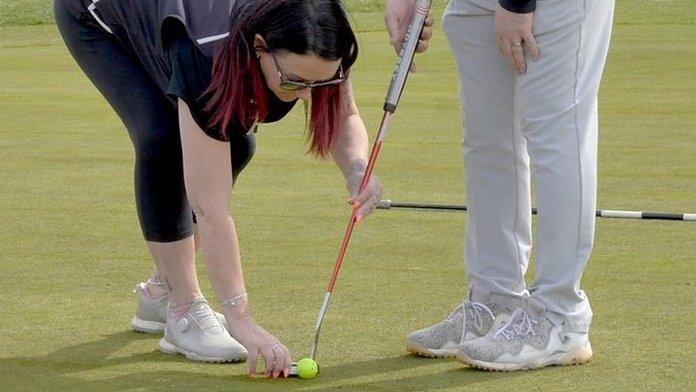The Auld enemies combatting loneliness through sport
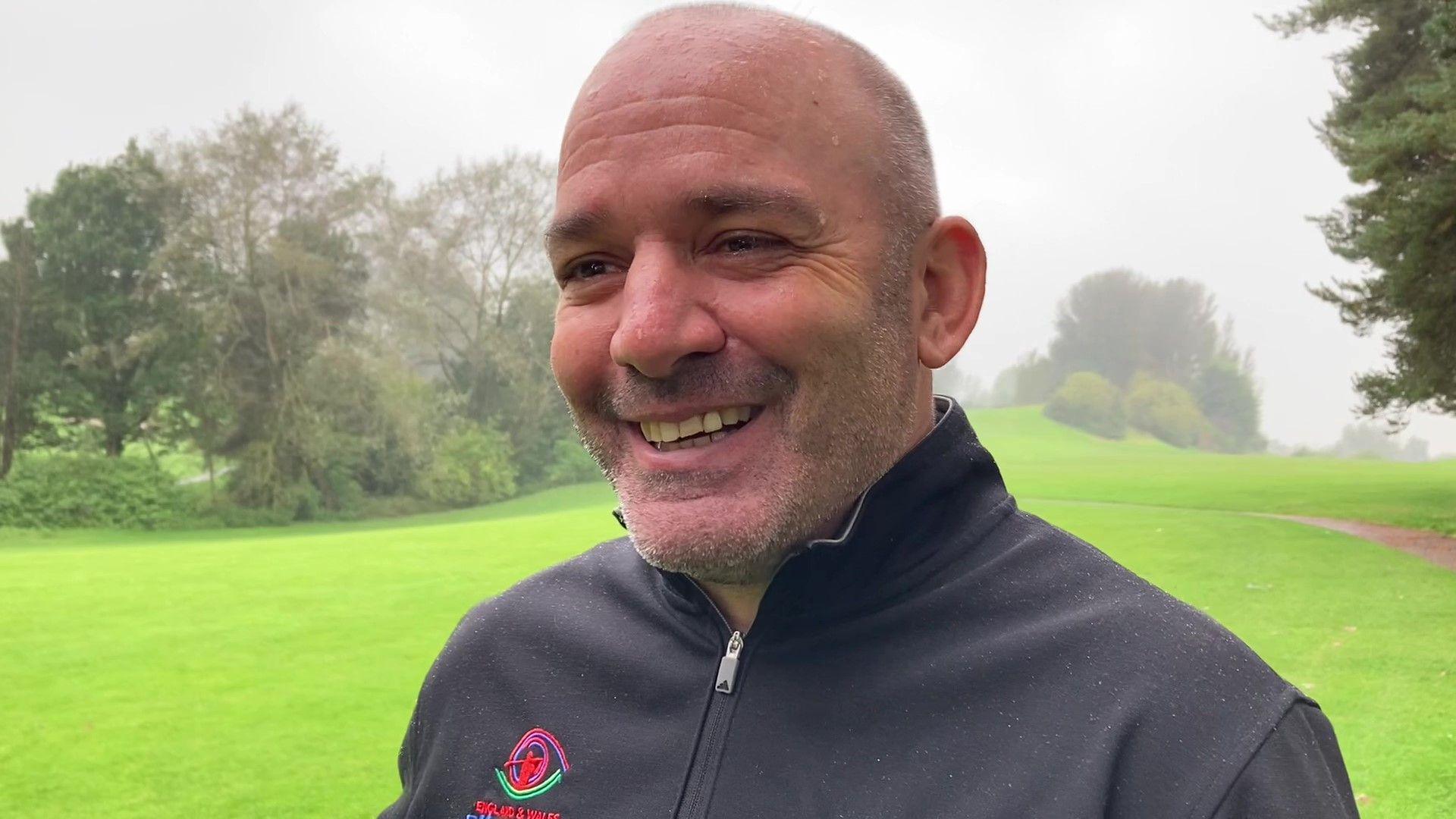
Andy Gilford says blind golf can help combat loneliness and can provide quality time for families
- Published
For four decades, two teams have battled it out at an annual tournament, in a bid to win the Auld Enemies Cup.
This week, England and Wales Blind Golf are taking on reigning champions Blind Golf Scotland, in a three-day competition at the Hill Valley Golf Club in Whitchurch, Shropshire.
Captain of the England and Wales team, Andy Gilford, explained to the BBC how blind golf operates, and how it can benefit people who are going through sight loss, as well as their families.
For many, blind golf is about building communities and stopping people from sitting at home on their own, he said.
"When you go to the opticians and get told the news, when you find out your world's been turned upside down, you don't have a mental health counsellor with you," Gilford said.
"As a sport, you just think of the golfer, but the charity can help anybody. For the guide who's got sight, it can be just as important for them, in terms of loneliness or depression.
Players in blind golf each compete with their own guide, who will survey the course and give the golfer information and cues on how to navigate the course and make a precise shot.
Gilford's guide is his wife Melanie who he met through the charity.
Another competitor at this week's tournament is guided by his dad, but some golfers have friends or volunteers as their guides.
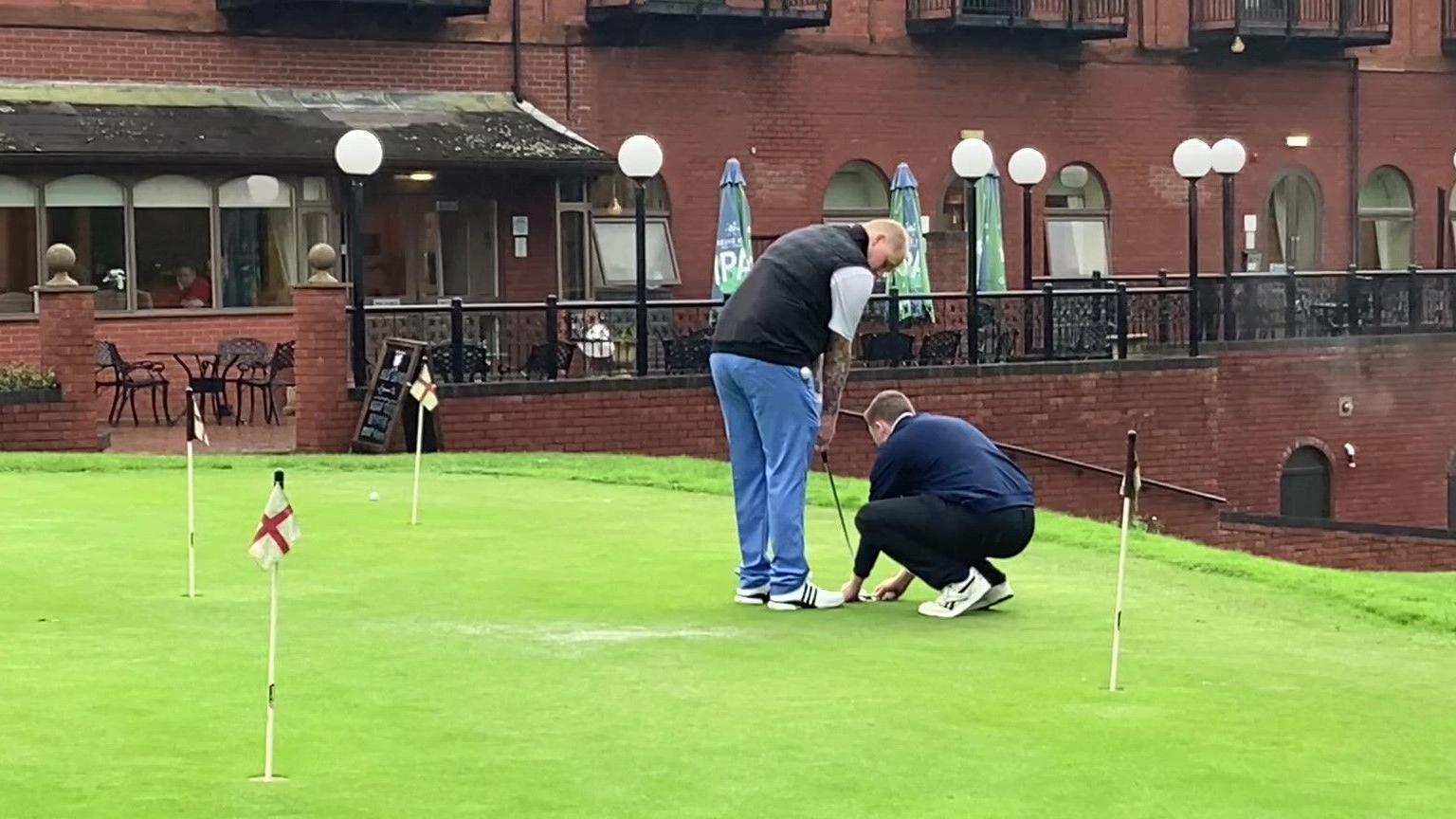
Blind golf relies on the close partnership between a golfer and their guide
Captain of the Scottish Blind Golf team is Stewart Paton. He started having issues with his sight in 2019 and thought his golfing career might be finished.
Steve Cunningham, a former pupil at the Royal National College for the Blind in Hereford and who plays for England and Wales, lost his eyesight at 12.
He has also played football for England for two decades and holds three world records, including becoming the first blind person in history to fly an aeroplane around the UK in 2004.
"You give him a challenge and he'll do it. You put anything in front of him and he'll put his mind and body into everything. He's a great inspiration," his guide and friend Dave Wise said.
Another team member is Danny Daniels, competing at the age of 87.
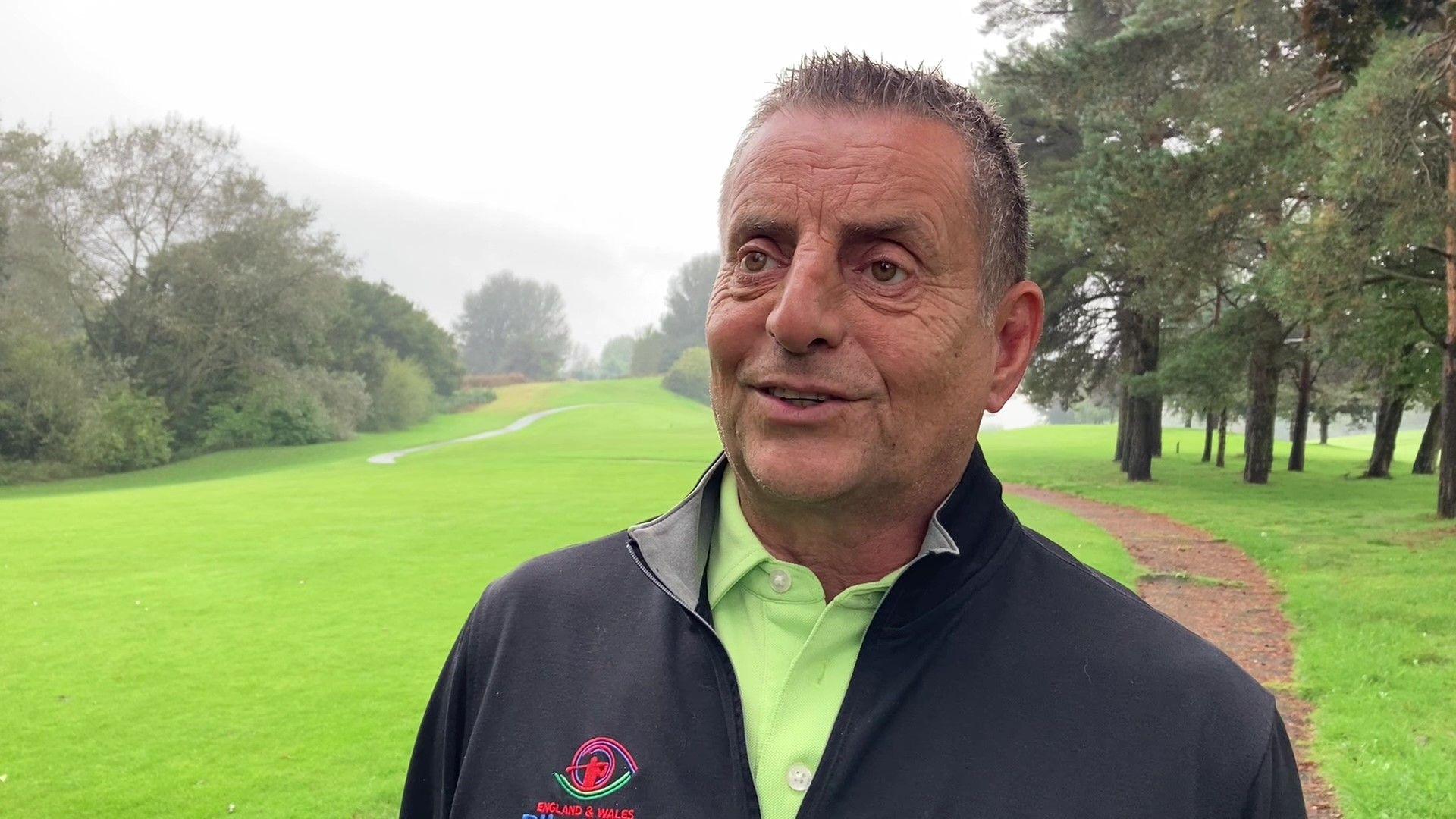
Steve Cunningham, who lost his eyesight at the age of 12, says sport helped get him back on track
There are three categories of blind golf, depending on the level of sight loss the golfer experiences.
Gilford, who joined England and Wales Blind Golf in 1998, plays in the B2 category, for people who have less than 5% vision.
However, there is a B1 category for people who are completely blind and a B3 category for players with less than 10% vision.
The charities' campaign to raise awareness of the competition has also led to female players competing in this year's cup for the first time.
Get in touch
Tell us which stories we should cover in Shropshire
Follow BBC Shropshire on BBC Sounds, Facebook, external, X, external and Instagram, external.
Related topics
- Published22 August 2024
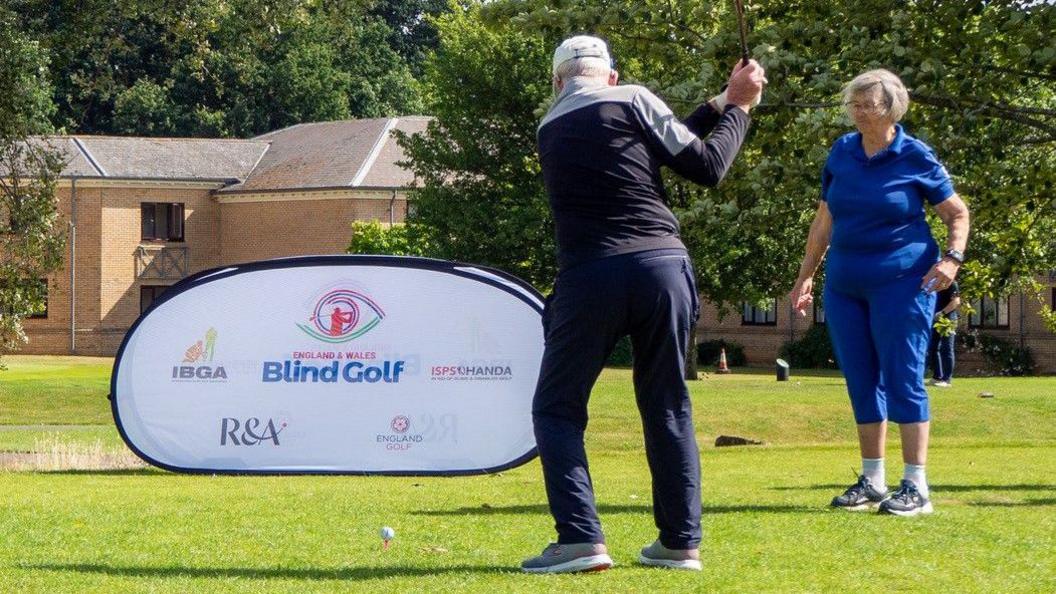
- Published4 August 2024
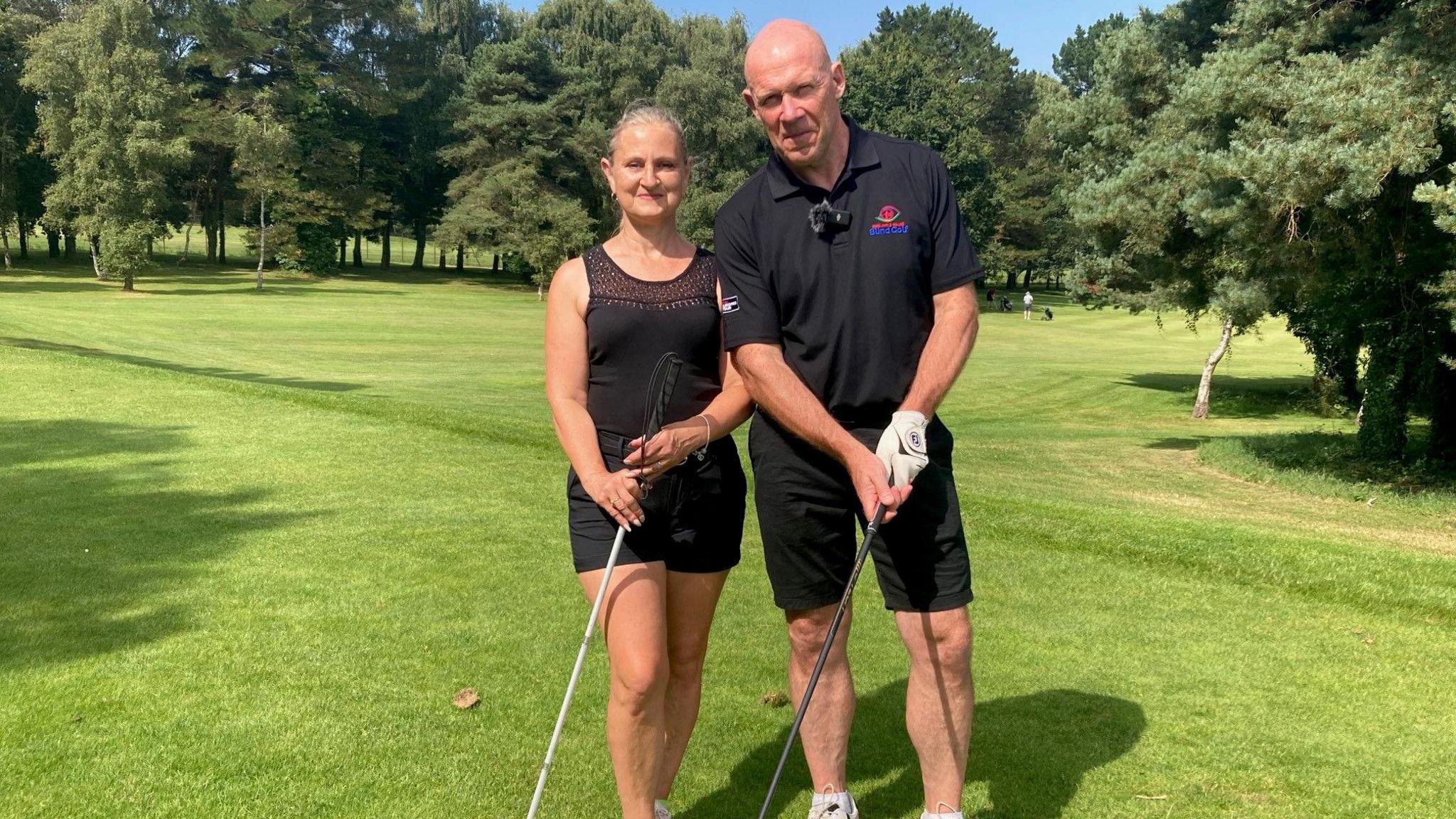
- Published29 June 2022
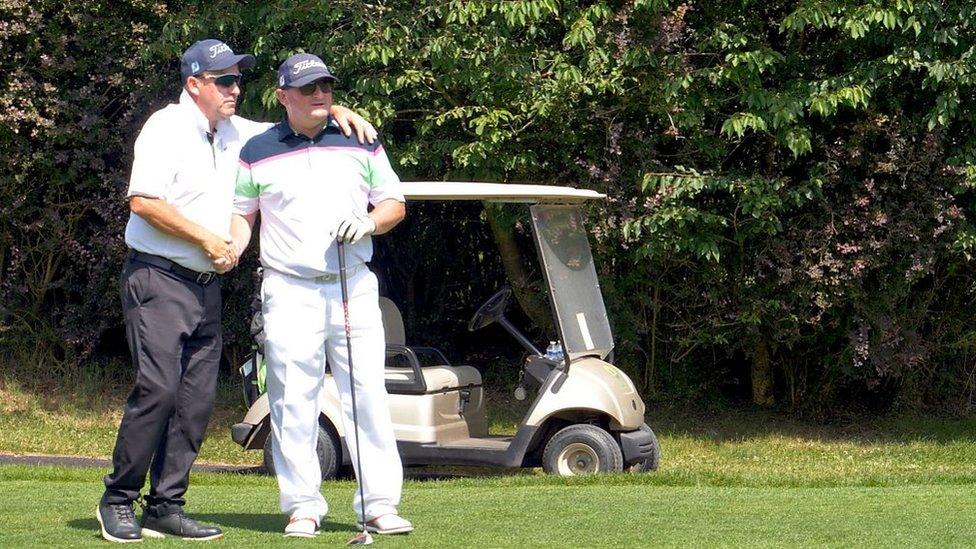
- Published12 April 2022
